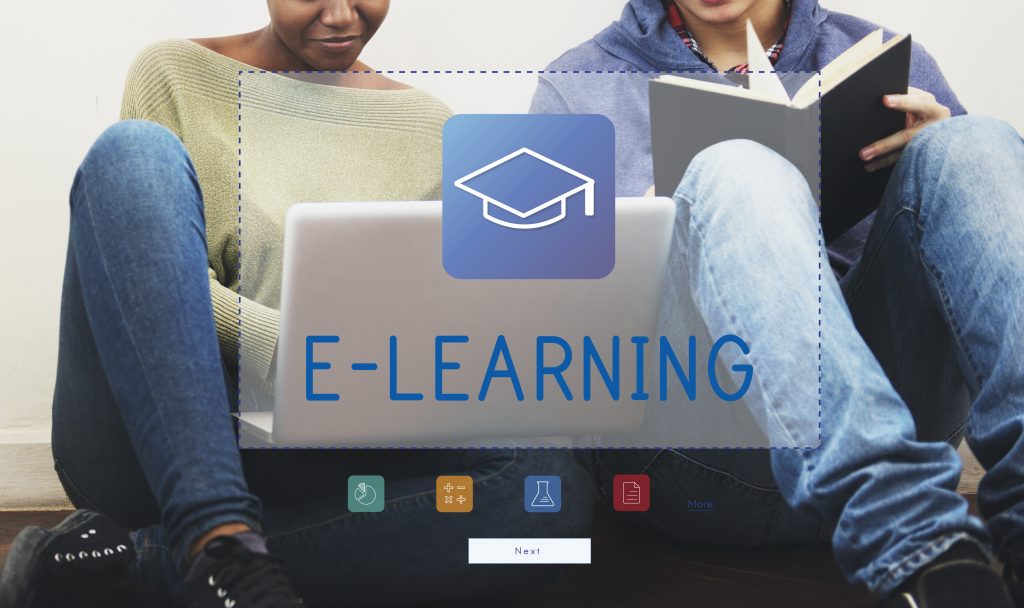In the field of education, there is a lot that you can discover whether learning in a traditional classroom setting or virtually. However, some students prefer one over the other and may perform differently depending on the environment. Given recent events, parents and teachers alike are also recognizing that certain learning environments aren’t ideal for every student. They have become more aware of the pros and cons of both, which we will examine below.
Virtual Learning
Let’s first take a look at the virtual classroom learning environment. Although virtual learning has been around awhile and is a convenient option for some, it has become more widespread since the COVID-19 pandemic. This has caused students and teachers to have to make huge changes in regards to learning, and each individual has adapted differently.

Pros
One advantage of virtual learning is that it’s a safer option. Given the current pandemic, this style of learning is helping to stop COVID-19 from spreading. Besides this, many enjoy the flexibility of the virtual learning schedule. This allows for someone to work at their own pace, and there is less pressure to complete work at a certain time. Since technology use is essential to virtual learning, this can help improve a person’s overall technology skills.
Cons
While virtual learning has its advantages, some students may not have enough resources at home to learn virtually or to enhance their learning outside of the classroom. In addition to this, it may be harder for some students to focus if school is online, which will decrease the amount of learning done. Another thing to consider is this: In a virtual learning environment, a lot of students feel that they don’t have the chance to socialize as much as they would in an in-person setting.
Virtual learning may also be difficult depending on the age of the child and the child in general. This is especially true if a child is younger. Young children will likely need more assistance with virtual learning, which means the parents are also affected.
When you look at the virtual environment from a teacher’s perspective, there are also a few challenges. Some teachers may find it difficult to control the virtual environment and student attendance, because students can come late and leave in the middle of the lesson. Also, not everyone is a fan of using the video and opt to leave it off, which makes communicating a challenge.
Since virtual learning requires technology and the internet, if those using the technology (student or teacher) don’t have service or a good connection, teaching and learning won’t happen. If a person’s technology skills are low, this also has an effect on virtual learning and teaching a successful virtual class.
In-Person Learning
Pros
One definite advantage to the in-person classroom is socialization. When students come and spend the day in a traditional classroom setting, they get to interact with their classmates and work on their social skills. Besides getting to socialize with classmates, they get to engage with their teachers face to face. This also helps teachers because reading student body language is important when it comes to instruction. By doing this, teachers can see if a student is struggling to understand the material. Depending on student reactions, teachers can explain the material again so it’s clearer.
With in-person learning, students are likely to pay more attention and learn without as many distractions. Students can also take advantage of the supplies available for use in the classroom, which is especially helpful if they don’t have a computer at home.

Cons
As we all know, there are a lot of positives to in-person learning. But presently, there are cons that come with in-person learning. The main disadvantage is more exposure to the COVID-19 virus. The change in the classroom setting due to the pandemic is also difficult and has an effect on students and staff.
Another thing with in-person learning is that it’s not as flexible as virtual learning. Classroom teaching has to be done at a certain time during the day, and if a teacher falls behind, they may not complete the lesson for the day. Also, the price to teach in-person is higher because more supplies are needed to teach in the classroom.
Conclusion
Whether you prefer learning in person or learning virtually, each has its pros and cons. These can be determined by many things, such as how much learning is done by the students and how effectively the teachers can teach their students. The costs of both types of learning and the flexibility offered is something to be considered when selecting a learning style. With recent events, students have experienced both types of learning and have become aware of their learning preference. Overall, there will be varied opinions on which type of learning is best, so it’s up to each individual to decide what style works best for them or their child in order to have success.
References:
Doan Thi Hue Dung. “The Advantages and Disadvantages of Virtual Learning.” IOSR Journal of Research & Method in Education (IOSR-JRME), 10(3), (2020): pp. 45-48.
Gaeta, Madeline “The Virtual Divide; Online vs, In-Person Learning in Fall 2020, https://students4sc.org/2020/09/23/the-virtual-divide-online-vs-in-person-learning-in-fall/2020/
Olasile Babatunde Adedoyin & Emrah Soykan (2020) Covid-19 pandemic and online learning: the challenges and opportunities, Interactive Learning Environments, pp. 1-9 DOI:10.1080/10494820.2020.1813180
